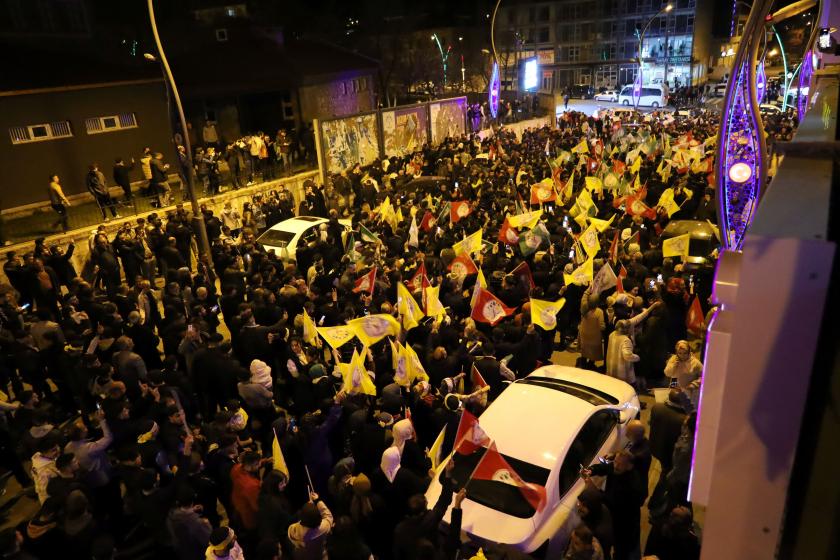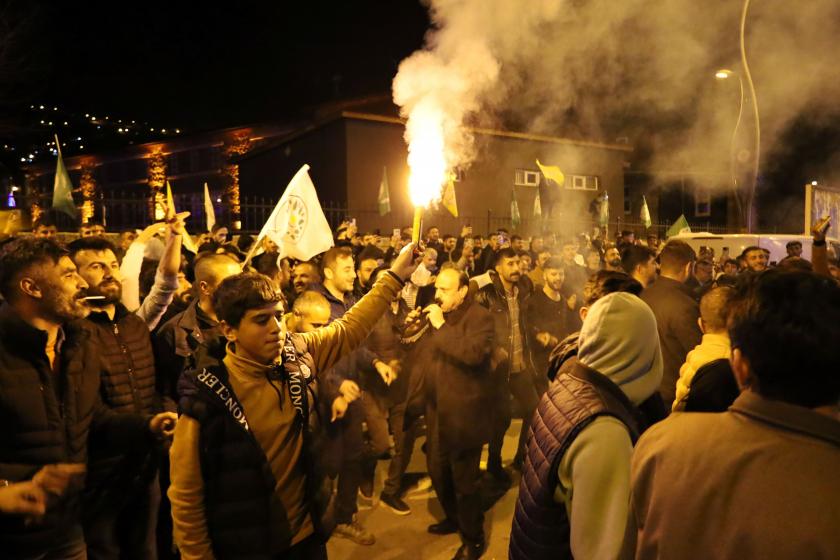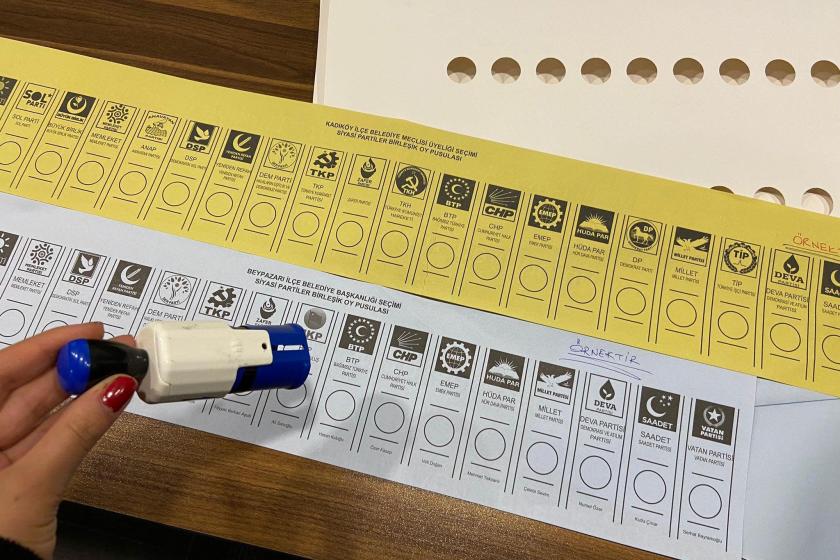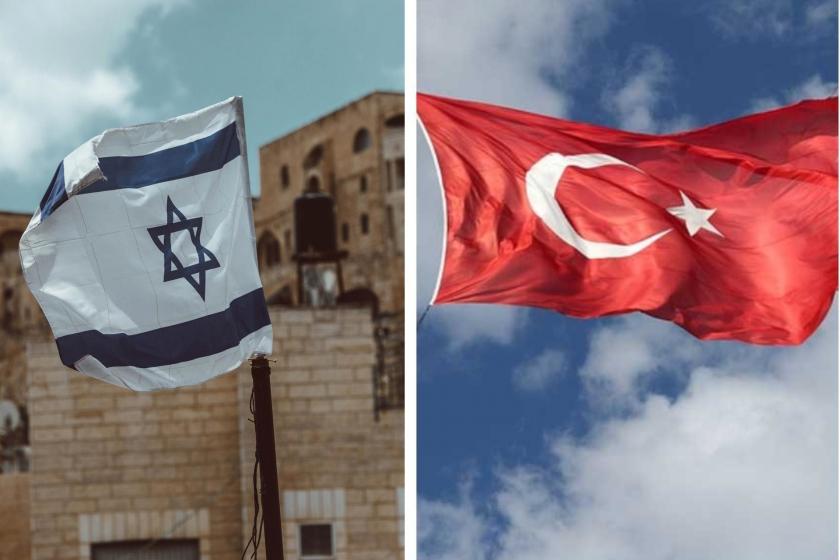President Erdoğan, who had tied all kinds of matters, ranging from the “secure region” to be established in “the east of Euphrates” to the resolution of countless issues with the US, to face to face talks with Trump, returned Turkey without being able to realise the anticipated meeting.
And subsequent to the expiry of the date given with “in the eventually whereby the US is not aligned with us by the end of September, we will establish the secure region ourselves,” the General Security Council (Milli Güvenik Konseyi -MGK) met the previous day.
At the time when this article was written, the MGK meeting had not ended yet. However, it was known that the main agenda of the MGK meeting consisted of “the east of Euphrates,” “eastern Mediterranean” and developments about “the fight against terror.” But what everybody was curious to find out was the decision to be taken by MGK about the operation against “the east of Euphrates,” about which joint “work” with the US was going on for weeks.
The message given by the US concerning “the east of Euphrates,” is the continuation of the joint command in Akçakale and the “establishment of THE secure region” according to compromises reached there.
However, government representatives have been mooting the work in Akçakale as a “move to distract Turkey”; and have been describing it as a region 425 kilometres in length and 30-40 kilometres in breadth, controlled and governed militarily by Turkey. And indeed, those who rule Turkey have expanded their aspirations to plans which takes, as its basis, staying in the region eternally by settling 1-2 million refugees in this region and building cities and villages there. But alongside the lack of support given to this plan by either the US or other western countries, there is no expectation that Iran and Russia will provide any support to such a plan either.
Russia and Iran have been preferring not to openly react to statements emanating from Turkey perhaps because of favouring a clash between Turkey and the US on the matter but there is also no indication that they will tolerate Turkey establishing a “secure region” governed militarily as described by Turkey on the Syrian soil. On the contrary, even in the Iran-Turkey-Russia summit taking place in Ankara, it is well known that the soldiers referred to in Russia and Iran’s demand of “the expulsion of foreign soldiers from Syrian land,” are the soldiers of the US and Turkey.
And indeed, the Syrian Minister for Foreign Affairs, Walid Muallem, in a speech given in UN, stated that “Any foreign force operating in our territory without our authority is an occupying force and should withdraw immediately.” Speaking about “the secure region,” Muallem said “The US and Turkey continue to have an illegal military presence in the north of Syria.”
It looks obvious that Turkey had achieved leaving itself “alone” in its endeavours concerning the “the east of Euphrates.”
On the other hand, CHP organised a “Syria Conference” in Istanbul last week, participated also by foreign speakers.
The CHP have presented proposals about bringing a political solution to the Syrian question; and highlighting that nothing will be achieved with a policy vacillating between the US and Russia, it defended that the question can only be resolved by talking to the Syrian government and the legitimate representatives of the Syrian peoples.
Yes, at least some representatives of CHP, on previous occasions, had mentioned the proposals in this conference. But, at a time when an operation against Syria is high on the agenda, it is important for CHP to express its views, having also ensured an international participation. And it will not be wrong to consider CHP’s criticism of the Government policy to resolve the issue with “military force” and “vacillating between the US and Russia” as a step taken forward compared to yesteryear.
But at turbulent periods such as these, words uttered are only important in so far as they correspond to something in practise. If the words uttered correspond to nothing in practise, if they are forgotten or passed over, the fact that the words may be “true” or “progressive” begins also to lose its importance. Moreover, the door is also left ajar for the utterers of the words to be subject to charges of being inconsistent.
And indeed, especially after the “Syrian Conference”, CHP is facing such a test.
This is because the turbulent agenda brings to the fore the following two questions which needs a clear response from CHP (and for all progressive democratic sections too):
In the forthcoming days, the Erdoğan government will bring the “memorandum authorising the dispatch of soldiers beyond the borders” before the parliament. Is the CHP going to say “yes” to this memorandum, defending “that this is a national matter,” or is it going to take as basis the approach it declared during the conference and say “no”? If a military operation were to rise in the agenda, with or without the US against “the easts of Euphrates” and with the purpose of “establishing a secure region,” is the CHP going to support this military operation saying “we should stand behind our boys,” or saying “One cannot ensure neither the resolution of the Syrian question nor peace in the region in this way. This only draws Turkey further into the quagmire in the region,” is it going to openly oppose this?
Indeed, these are two most important questions of the day for CHP (and the entirety of progressive democratic sections and intellectuals).
At the time of reading this article, you would have already heard of the decisions taken by MGK. But whatever the MGK decisions, the importance of these two questions will not lessen for CHP and the intellectual-democratic public opinion.



